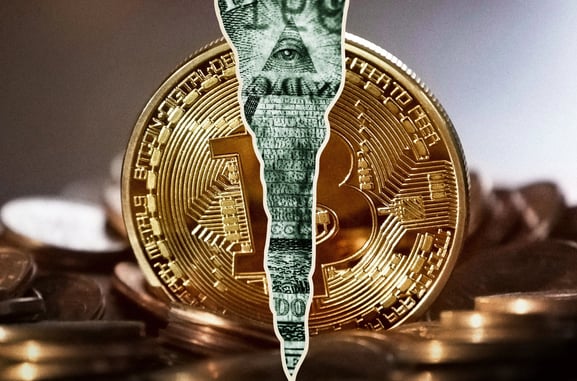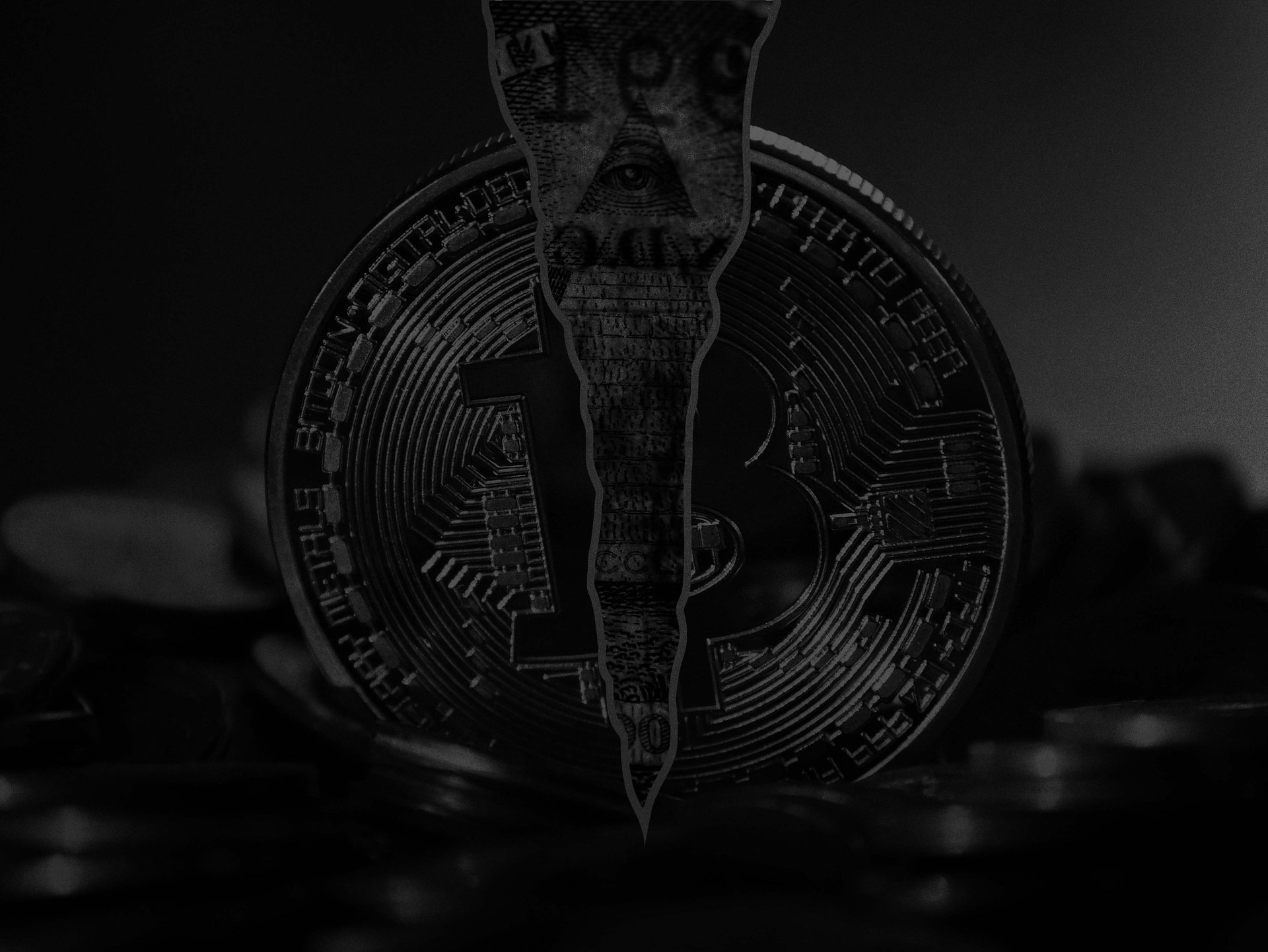
Latest Article: Bitcoin Isn't as Decentralized as You Think. Here's Why.
Bitcoin Isn't As Decentralized As You Think. Here's Why.
Is Bitcoin actually decentralized? Learn how Bitcoin could be controlled by governments and large financial institutions.
BUSINESSHOMEPAGE - FEATURES - ROW 1ECONOMYINVESTING
David Kindness, CPA
3/6/2025



Bitcoin Isn't As Decentralized As You Think. Here's Why.
Published on March 5, 2025
Written by David Kindness, CPA
Why you can trust Your Creative CPA
Our content is written, edited, or both by industry experts who are creative entrepreneurs just like you. Learn more.
Bitcoin, the first and most well-known cryptocurrency, has captivated the world with its promise of decentralization, freedom from the Federal Reserve, and financial freedom for investors. Often touted as “digital gold,” Bitcoin is envisioned as a currency beyond the control of governments and central banks.
However, the reality of Bitcoin's decentralization is more nuanced than you might think. This article will explain what Bitcoin is, explore why it's considered "digital gold", and critically examine the surprising factors that challenge its perceived decentralization.
What is Bitcoin?
Bitcoin is a decentralized digital currency, commonly known as a cryptocurrency, operating on a peer-to-peer network. It utilizes blockchain technology - a distributed ledger that records all Bitcoin transactions chronologically and transparently. This ledger is run on thousands of user-owned servers (computers and hard drives) located around the world.
Bitcoin is the first cryptocurrency and was created by a secretive figure known only as “Satoshi.” To this day, no one knows for sure who Satoshi actually is. From the beginning, the goal of Bitcoin was to create a digital currency free from the control of central banks, governments, and any other single owner.
What Makes Bitcoin Decentralized?
The technology that enables Bitcoin and other cryptocurrencies is considered decentralized due to three main factors. These include:
No Central Authority: There is no single entity, such as a government or central bank, controlling the Bitcoin network or creating new Bitcoins.
Distributed Network: Transactions are validated and recorded across a vast network of independent nodes (servers), making it nearly impossible for any single entity to control or manipulate the system itself.
Cryptography: Secure cryptographic algorithms - essentially complex code-based puzzles that must be solved - protect Bitcoin transactions from corruption and ensure that each transaction is unique and valid.
These features, in theory, make Bitcoin resistant to censorship, inflation, and government or central bank intervention, fostering what appears to be a truly decentralized financial system. However, we’ll explore whether Bitcoin is decentralized or not below.
Why is Bitcoin Considered a Store of Value or “Digital Gold”?
Bitcoin is often compared to gold due to several key characteristics, including its limited supply, its lack of usefulness in transactions (it’s slow), its ability to hold its value over time, and its decentralized nature.
Because of these factors, people often view Bitcoin as digital gold or a store of monetary value, much like physical gold. As a result, proponents argue that Bitcoin's scarcity, coupled with its decentralized nature, makes it a valuable asset for long-term investment and a hedge against traditional financial systems.

Bitcoin's relatively low market cap makes it possible for banks and large financial institutions to control it, artificially manipulating its market price.

Why Bitcoin Is Not As Decentralized As You Think
While the underlying blockchain technology is decentralized, several factors challenge Bitcoin’s complete decentralization. The most important of these factors is Bitcoin’s relatively low market cap (the total value of all Bitcoin in the market). You might be thinking “Okay, but how is a ~$1.9 TRILLION dollar market cap low??” Well, let me explain.
The US federal government connects trillions of dollars in taxes each year, states collect trillions more (combined), the US Federal Reserve controls 6.8 trillion in assets (as of 02/2025), and banks manage trillions more. Additionally, investment vehicles such as mutual funds, ETFs, and index funds generate significant investments in a wide range of financial securities, including cryptocurrencies, which gives large banks even more control.
These government and financial institutions have the funds to purchase and control a significant portion of Bitcoin’s total value, and they could already be doing just that. They could use this majority ownership to manipulate the price of Bitcoin by repeatedly selling them to each other, artificially driving down (or up) the price of Bitcoin as they desire. They could also control who owns Bitcoin by simply purchasing more and more of it, and then choosing who they’re willing to sell it to.
This might sound far-fetched, but this type of market manipulation is already being used to influence the price of gold in the same way. Banks buy and sell paper gold - investments that are pegged to the price of gold - amongst themselves to manipulate gold prices. For reference, the total market value of gold is $19.4 trillion as of 02/2025, which is 10.21 times the total market value of Bitcoin at the same time. If governments and financial institutions can manipulate gold, they can manipulate Bitcoin too.
Bitcoin would have to be worth significantly more than it currently is in order to be immune to manipulation and reach true decentralization. Unfortunately, however, the current holders of Bitcoin would likely benefit from its growth, maintaining their proportional ownership.
This creates a unique issue: Bitcoin is not big enough to be truly decentralized - and it may never be.
Other Factors That Challenge Bitcoin’s Decentralization:
Mining Concentration: Bitcoin mining - the process of validating transactions and creating new coins - requires significant computational power and an up-front investment to purchase servers. This has led to the emergence of powerful mining pools, which control a substantial portion of the network's hash rate (AKA Bitcoin creation rate). This concentration of mining power raises concerns about potential centralization and the possibility of 51% attacks, where a single entity could gain control of the network.
Regulatory Pressure: Governments and regulatory bodies are increasingly scrutinizing cryptocurrencies, including Bitcoin. Regulations on exchanges, mining operations, and investor protections can significantly impact Bitcoin's operations and potentially undermine its decentralization.
Large Holders: A small number of entities, including exchanges, whales (large investors), large banks, and mining pools, hold a significant portion of the Bitcoin supply. This concentration of ownership raises concerns about potential manipulation of the market and the ability of these entities to exert undue influence.
Dependence on Infrastructure: Bitcoin's reliance on internet infrastructure and electricity supply can be seen as a form of centralization. Disruptions to these critical infrastructures can significantly impact Bitcoin's functionality and accessibility.
Development Concentration: Bitcoin's development is largely driven by a small group of developers and contributors. This concentration of development power raises concerns about potential biases and the possibility of unforeseen vulnerabilities.
Conclusion
While Bitcoin's blockchain technology offers a compelling vision of decentralization, the reality is more complex. Factors such as mining centralization, regulatory pressures, and the influence of large holders challenge Bitcoin's complete decentralization.
It's crucial to acknowledge these limitations while recognizing Bitcoin's potential as a valuable asset. As the cryptocurrency market evolves, ongoing research and development will be essential to address these challenges and further enhance the decentralization and security of Bitcoin and other cryptocurrencies.
Frequently Asked Questions (FAQs)
What is the difference between Bitcoin and traditional currencies?
Bitcoin is a decentralized digital currency, while traditional currencies are issued and controlled by central banks.
How does Bitcoin mining work?
Bitcoin mining involves using powerful computers to solve complex mathematical problems to validate transactions and create new bitcoins.
What are the risks associated with investing in Bitcoin?
Risks include price volatility, security breaches, regulatory uncertainty, and the potential for technological disruptions.
Is Bitcoin truly a store of value?
Bitcoin's long-term value as a store of value is still debated, with proponents arguing its scarcity and decentralization while critics point to its volatility and potential risks.
How can Bitcoin become more decentralized?
Potential solutions include improving mining decentralization, promoting community governance, and enhancing the security and privacy of the Bitcoin network.
Disclaimer: the information provided in this article is for educational purposes only and does not constitute tax, accounting, investing, legal, or financial advice. The information in this article does not take into account your unique financial or business situation or goals, and YCCPA cannot be responsible for reader's financial decision-making. YCCPA's goal is to educate and support you on your creative business journey.
Written by David Kindness, CPA
David is a CPA (Certified Public Accountant) and professional photographer, videographer, and designer based in San Diego, California. Learn more.




Supported by Ads
Your Creative CPA is supported by the ads you see in our articles and guides.
These ads help us help creatives like you.

financial wisdom for creatives, by creatives
Created by David Kindness
Copyright 2025 Terms






